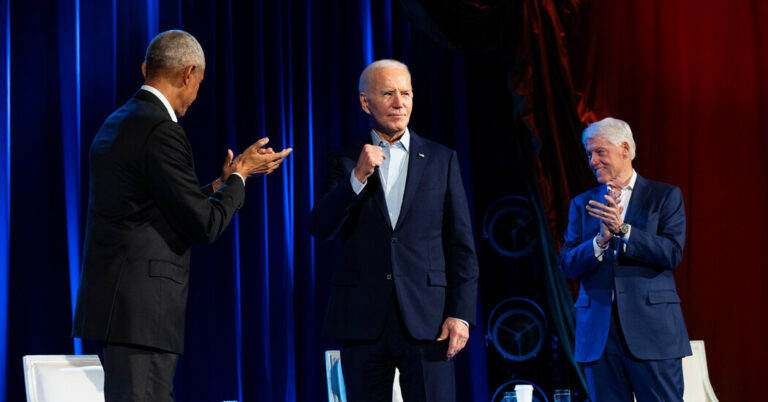If he can tap into the anti-elite sentiment among his party’s small donors and weather the post-debate turmoil, he will join more populist politicians such as Vermont Independent Sen. Bernie Sanders and Georgia Republican Rep. Marjorie Taylor Greene, who have raised big sums from small donors by complaining about unfair treatment by the establishment.
“We know that high visibility and tensions can produce an instantaneous flood of small donations, and that anger, resentment and outrage are powerful motivators in politics, even for small donors,” Richard H. Pildes, a New York University law professor who has studied the role of small donors in driving political polarization, said in an email. “It may also be that a conflict is emerging between the Democratic base that wants to keep Biden in office and a more ‘elite’ faction of big donors who want an alternative.”
Small donors have long been valued in politics as a sign of grassroots enthusiasm and a sustainable source of funding because they can give repeatedly without hitting contribution limits. Advances in online, email and mobile fundraising applications have allowed campaigns to use large events as opportunities to solicit donations from supporters of average means.
Eitan D. Hirsch, a political science professor at Tufts University who studies the motivations of political donors, said small donors tend to give “from the heart.” “Big donors give from their heads rather than their hearts,” he said, predicting that Biden’s campaign will see “a decline in big donors and a relative increase in the proportion of small donors.”
Carol L. Hamilton, a Los Angeles lawyer who serves on Biden’s national finance committee, said Biden “has people who may not be multi-million or hundreds of thousands of dollars donors, but who are interested, who are going to vote, and who by donating a few dollars now — $5, $25 — are expressing their opinion that this president should continue in the race and are showing their support for the president.”

